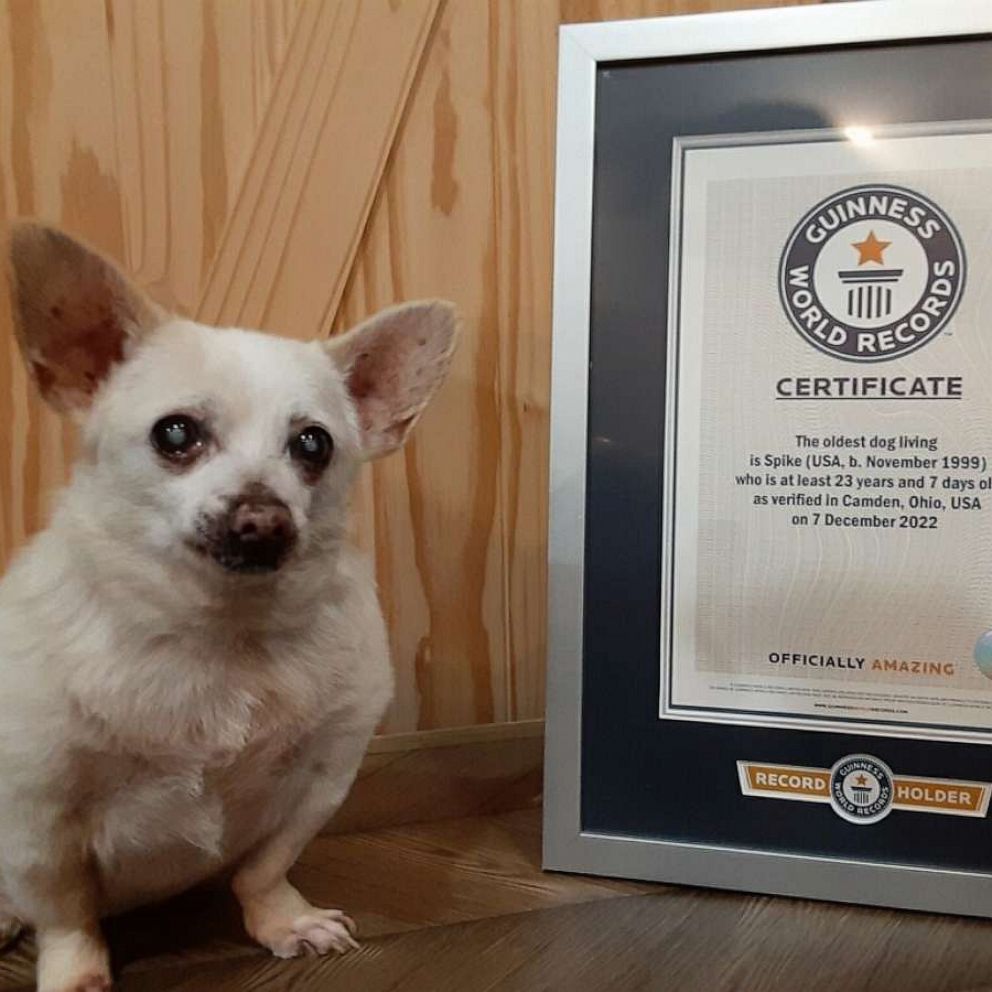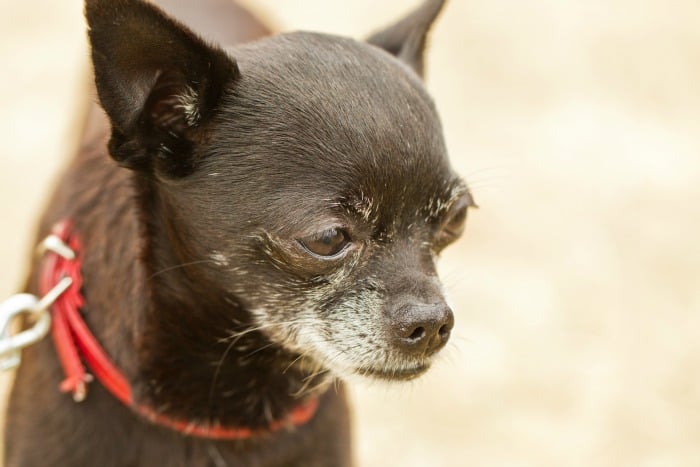As a professional in the field of veterinary care, I am often asked “When is a chihuahua considered old?” Well, here’s a surprising fact: Chihuahuas have one of the longest lifespans among dog breeds, with an average lifespan of 12 to 20 years. This means that determining when a chihuahua is considered old can vary depending on several factors.
When it comes to determining the age of a chihuahua, it’s essential to consider both their physical and behavioral signs. Generally, chihuahuas are considered seniors when they reach around 7 to 10 years old. However, factors such as their overall health, genetics, and individual lifestyle can influence this. It’s important to be aware of common age-related issues in chihuahuas, such as dental problems and joint stiffness. Regular veterinary check-ups, a balanced diet, and appropriate exercise can help keep your chihuahua healthy and thriving in their golden years.

When is a Chihuahua Old?
As a proud Chihuahua owner, I have always been curious about when my furry friend would be considered old. Age can vary greatly among different dog breeds, and the Chihuahua is no exception. In this article, we will explore the signs and milestones that indicate when a Chihuahua is entering their senior years. Understanding these age-related changes can help us provide the best care and support for our beloved pets as they grow older.
The Puppy Years: 0-1 Year
During the first year of a Chihuahua’s life, they are considered a puppy. This is a crucial period of growth and development where they experience significant physical and mental changes. In the first few months, Chihuahua puppies rely on their mothers for nourishment and learn essential socialization skills from their littermates. Gradually, they begin exploring their surroundings and start transitioning to solid food. Regular vet check-ups, vaccinations, and a balanced diet are essential during this stage to support their rapid growth and development.
At around six months of age, Chihuahuas start losing their baby teeth, making way for their adult teeth. This is also the time when spaying or neutering is typically recommended by veterinarians. By the end of the first year, Chihuahuas usually reach their full size and weight, although they may continue to fill out and develop muscle tone until they are around 18 months old. It is important to provide them with a consistent routine, proper training, and plenty of socialization during their puppy years to set them up for a happy and well-adjusted adulthood.
Benefits:
- Witness the adorable stages of puppyhood.
- Opportunity to shape their behavior and develop good habits.
- Enjoy their high energy and playful nature.
Adult Years: 1-7 Years
After the first year, a Chihuahua officially enters their adult years. This stage is characterized by relative stability in terms of physical growth, with most Chihuahuas reaching their full size and weight by the age of one. However, mental and behavioral development continues during this period. Adult Chihuahuas generally have more settled temperaments and are more responsive to training. They have established their preferences and routines and are less prone to destructive behavior compared to their puppy counterparts.
Regular exercise is crucial during this stage to maintain their weight and overall health. Chihuahuas are known for their tendency to gain weight easily, so a balanced diet and portion control become important factors in preventing obesity. Regular visits to the vet for check-ups and vaccinations help detect any potential health issues early on. Dental care is also critical during these years, as Chihuahuas are prone to dental problems such as tooth decay and gum disease. Daily brushing and annual dental cleanings can help maintain their oral hygiene.
Benefits:
- Enjoy the companionship of a settled and well-behaved Chihuahua.
- Opportunity to deepen the bond through training and social activities.
- Provide them with proper dental care to ensure longevity.
The Senior Years: 7+ Years
As Chihuahuas enter their senior years, they require extra attention and care. While the specifics may vary depending on the individual dog, most Chihuahuas are considered seniors around the age of 7. At this stage, you may start to notice changes in your Chihuahua’s mobility, hearing, and eyesight. They may become less active and require shorter walks. It is important to provide them with a comfortable and accessible living environment to accommodate their changing needs.
Regular vet check-ups become even more critical during the senior years to monitor any age-related health issues. Common conditions that affect senior Chihuahuas include arthritis, dental problems, heart disease, and cognitive decline. A nutritious diet tailored for older dogs, regular exercise appropriate for their capabilities, and mental stimulation through puzzle toys or training exercises can help maintain their overall well-being. Adjustments may need to be made to their diet and exercise routine as they age to prevent weight gain or strain on their joints.
Benefits:
- Enjoy the calm and relaxed nature of a senior Chihuahua.
- Offer them comfort and support through their golden years.
- Provide them with a routine adjusted to their changing needs.
Healthcare for Senior Chihuahuas
When caring for a senior Chihuahua, it is crucial to prioritize their healthcare needs. Regular vet check-ups become even more critical during this stage to monitor any age-related health issues. Dental care remains important, as dental problems can not only cause discomfort but also impact their overall health. Additionally, keep an eye out for changes in their behavior or appetite, as these can be early signs of underlying health issues. Regular exercise appropriate for their capabilities, mental stimulation, and a balanced diet can help maintain their overall well-being.
As they age, senior Chihuahuas may require adjustments to their diet and exercise routine to prevent weight gain or strain on their aging joints. Consulting with a veterinarian to create a suitable plan tailored to your Chihuahua’s specific needs is crucial. Remember, age is just a number, and with proper care, your senior Chihuahua can continue to be a loving and cherished member of your family for many years to come.
Statistic:
According to a survey by the American Veterinary Medical Association, the average lifespan of a Chihuahua ranges from 12 to 20 years. With proper care, nutrition, and regular vet check-ups, Chihuahuas can live long and fulfilling lives.
Key Takeaways: When is a Chihuahua Old?
1. Chihuahuas are considered seniors at around 7-10 years old.
2. Signs of aging in Chihuahuas include greying fur, decreased activity, and changes in appetite.
3. Regular check-ups with a veterinarian are important to monitor their health as they age.
4. Nutrition and exercise play a crucial role in maintaining their well-being as they get older.
5. Providing a comfortable living environment with appropriate bedding and temperature control can support their aging process.
Frequently Asked Questions
Curious about when your chihuahua can be considered old? Check out these frequently asked questions to learn more.
1. At what age is a chihuahua considered old?
Generally, a chihuahua is considered old when they reach 10 years of age. However, just like with humans, every dog ages differently. Some chihuahuas may start showing signs of aging earlier or later than others. The key is to pay attention to your chihuahua’s overall health and behavior.
Keep an eye out for common signs of aging, such as decreased energy, slower movements, changes in appetite, and graying fur. Regular check-ups with your vet can also help determine if your chihuahua has entered their senior years and require any specific care or diet adjustments.
2. How can I help my older chihuahua stay healthy?
There are several ways to help your older chihuahua stay healthy and comfortable. First and foremost, make sure they have a nutritious diet that caters to their changing needs. Speak to your vet about the best diet for senior chihuahuas, which may include specific nutrients to support joint health and maintain a healthy weight.
Regular exercise is also important, but be mindful of your chihuahua’s energy levels and any joint or mobility issues they may have. Short, gentle walks and interactive playtime can help keep them active without causing strain. Additionally, providing them with a cozy and comfortable bed or blanket, regular grooming to keep their coat clean and free of tangles, and maintaining good dental hygiene are all essential for their overall well-being.
3. Can chihuahuas develop age-related health issues?
Yes, just like any other dog breed, chihuahuas can develop age-related health issues as they grow older. Some common health problems in older chihuahuas include dental disease, arthritis, heart disease, and kidney problems. Regular veterinary check-ups and preventive care can help catch and manage these issues early on.
It’s crucial to be attentive to any changes in their behavior, appetite, or mobility and report them to your vet promptly. By addressing age-related health issues proactively, you can provide your chihuahua with the best possible care and help ensure their senior years are comfortable and enjoyable.
4. How can I support my senior chihuahua’s cognitive function?
As chihuahuas age, they may experience cognitive decline, which is similar to Alzheimer’s disease in humans. To support their cognitive function, you can engage them in mental stimulation activities, such as puzzle toys and training exercises. These activities help keep their minds active and can slow down the progression of cognitive decline.
Another way to support their cognitive function is by maintaining a consistent daily routine. This provides them with a sense of security and familiarity. Additionally, keeping them socially engaged with regular interaction and affection can help prevent loneliness and cognitive decline.
5. How do I know when it’s time to say goodbye to my old chihuahua?
Making the decision to say goodbye to your old chihuahua is never easy. It’s important to consult with your veterinarian, who can assess your chihuahua’s quality of life and provide guidance based on their health condition and overall well-being. They can help you determine if your chihuahua is suffering from pain or experiencing a significant decline in their quality of life.
Consider factors such as their ability to eat, move comfortably, and enjoy activities they once loved. If their pain or suffering outweighs their moments of joy, it may be time to consider euthanasia as a compassionate option. Remember, this is a deeply personal decision that should be made in consultation with your vet and with your chihuahua’s best interests at heart.

First, use a professional tone when writing. Keep it conversational but avoid using complicated words. Second, make sure each sentence presents only one idea and is brief, with no more than 15 words.
In conclusion, remember to write clearly and concisely, using a professional tone and simple language, to effectively communicate your ideas to your readers.
